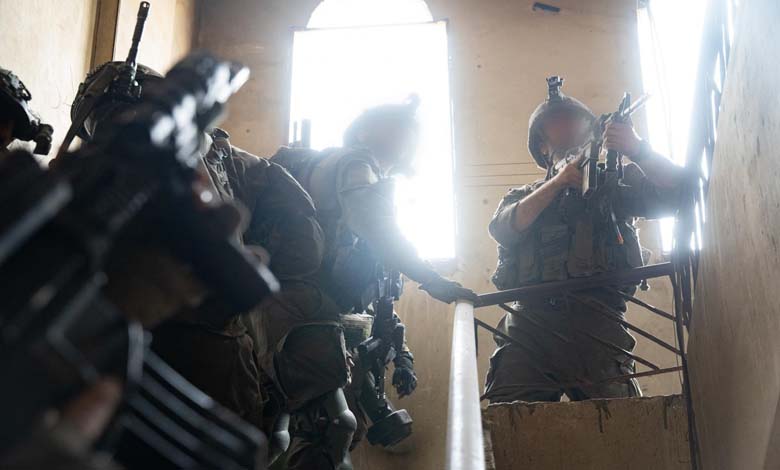Gaza Setback and the Success of Israeli Spies: An Analysis of Hezbollah Infiltration

Despite what is considered “Israel’s worst intelligence failure ever” a year ago, which led to Hamas‘ attack that triggered the Gaza war, the Jewish state has “succeeded” on the northern front, in “surprising” Hezbollah.
-
Israel Considers Ceasefire with Hezbollah While Continuing Escalation
-
Can Hezbollah stand up to Israel? Iranian President expresses doubts
Over the past two decades, and since the war against Hezbollah in Lebanon in 2006, Israel has “precisely” prepared for another major conflict with the Lebanese group — and perhaps with Iran, which backs it. Israel has invested its time and resources in infiltrating the northern front through a network of spies, according to the Wall Street Journal.
So, what is the secret of the “success” of Israeli spies in penetrating Hezbollah?
Carmit Valensi, a senior researcher at the Institute for National Security Studies in Tel Aviv and an expert on Lebanese groups, says: “Most of our focus was on preparing for a confrontation with Hezbollah. We somewhat neglected the southern front and the evolving situation with Hamas in Gaza.”
-
Israel Urges Lebanese Citizens to Immediately Move Away from Hezbollah Sites
-
Heaviest escalation between Hezbollah and Israel puts Lebanon on the brink of war
A series of Israeli attacks in Lebanon over the past two weeks left Hezbollah “stunned and shocked” by Israel’s ability to penetrate the group, as it struggled to close the gaps.
Thousands of Hezbollah‘s pagers and radios exploded almost simultaneously last week, killing 37 people and injuring around 3,000 others. Shortly after, an airstrike in Beirut killed more than a dozen military commanders.
-
The “gouged eyes” could have been avoided… Here’s what Hezbollah overlooked
-
Hezbollah’s Response to Chokr’s Assassination Eased Tensions
Hezbollah’s security remains vulnerable: on Tuesday, another Israeli airstrike in southern Beirut killed Hezbollah‘s top missile commander. Israel also attempted to target Hezbollah leader Hassan Nasrallah in a strike on Friday, though results remain unclear as to whether Nasrallah was killed.
These operations followed the “proof” of Israel’s ability to penetrate Hezbollah with the killing of top commander Fadi Shaker, who had been out of U.S. sight for four decades. Fadi Shaker was killed in an airstrike at his apartment in Beirut, shortly after being summoned by a phone call.
-
Washington Post reveals how Lebanese pay the price for Iranian threats and ongoing Hezbollah-Israel clashes
-
Hezbollah Bets on Tunnel Warfare in Confrontation with Israel
According to the Wall Street Journal, the intensive campaign by Israeli intelligence and military units has reduced Hezbollah’s arsenal, followed by a series of airstrikes hitting over 2,000 targets this week.
The Israeli Chief of Staff stated Wednesday that these efforts were preparing for a ground invasion. The U.S. and its allies are pushing both sides to cease the conflict, hoping to avoid a regional war as fighting in Gaza continues into its twelfth month.
-
Can Israel Deter Hezbollah? Dark Scenarios for a Potential Confrontation
-
New U.S. Sanctions Targeting Yemeni Houthis and Lebanese Hezbollah
Avner Golov, former director of Israel’s National Security Council, explains that “Israel’s success against Hezbollah, compared to its failure with Hamas, stems from the fact that Israel’s security forces are better at offense than defense.”
He adds: “The core of Israel’s security doctrine is bringing the war to the enemy. In Gaza, we were caught off guard, leading to failure.”
Israel has monitored Hezbollah‘s arsenal buildup since the truce in 2006. Disappointed with its army’s performance in that war, Israel has sought to better understand Hezbollah and reduce Iranian military support, particularly through airstrikes in Syria known as the “war between wars.”
-
Crisis Between Defense Minister and Army Chief Amid Heightened Tensions Between Hezbollah and Israel
-
12 Hours of Chaos in Israel “Saved” Hezbollah from a Potential Strike
Has Hezbollah been weakened?
Despite Israel’s long-standing efforts to weaken Hezbollah militarily, the group has managed to amass a vast arsenal. Now, it is contemplating how to respond to Israel’s devastating attacks. Hezbollah fired its first missile ever at Tel Aviv on Wednesday, its boldest response so far, though it has not yet fully deployed its capabilities.
Valensi warns: “Israel’s recent successes may lead to overconfidence, and a ground invasion could give Hezbollah the chance to demonstrate its military superiority on the ground.”
She concludes: “We have seen how difficult it is to dismantle a complex organization like Hamas, but Hezbollah is a different story.”
-
Hezbollah Focuses on Targeting Israeli Gas Fields
-
Secretive: Is Iran Training Hezbollah in Qom, Iran and Why?
But what is the secret of the failure in Gaza?
In contrast, Prime Minister Benjamin Netanyahu adopted a strategy of containing Hamas in Gaza in recent years, believing that the Palestinian group was focused on governing Gaza and was not interested in a war with Israel. The two sides had engaged in a series of brief conflicts following Hamas‘s takeover of the Gaza Strip in 2007, and it appears that the group’s leader in the territory, Yahya Sinwar, was more interested in improving the economic conditions for the Palestinian people.
There were indications that the group, classified by the United States as a terrorist organization, was planning an attack, including military drills that foreshadowed the methods by which they breached Israel on October 7. However, Israeli intelligence agencies downplayed the significance of these drills, viewing them merely as a threat to Hamas‘s domestic audience. The military felt confident in the strength of the technologically advanced barrier it had constructed to separate Gaza from Israeli territories.
-
Hezbollah Strikes Golan Brigade Headquarters with Large Rocket Barrage
-
“The Specter of War” with Hezbollah Terrifies Northern Israel Residents
Ozi Shai, a former Israeli intelligence official, stated that gathering intelligence from human sources could have warned of an impending attack, but this became more challenging after Israel’s unilateral withdrawal from the Gaza Strip in 2005 and its transfer to Palestinian control.
Shai added that “the ability to create human intelligence in Gaza, in a small and extremely dense area where everyone knows each other, where a stranger appears immediately, makes life much more difficult,” noting that “accessing individuals in Lebanon or outside of Lebanon connected to Hezbollah is easier.”
-
Israel and Hezbollah… 6 Months of “Measured Tension”
-
Israel Prepares Logistically and Militarily for War with Hezbollah
Another reason for Israel’s failure in Gaza—according to the Wall Street Journal—is that Hamas was seen as a less powerful threat. Even shortly before the Israeli incursion into the Gaza Strip on October 7, senior Israeli officials were dismissing any signs of an imminent attack.
Last September, the Israeli military described Gaza as being in a state of “stable instability,” and intelligence assessments concluded that Hamas had shifted its focus to inciting violence in the West Bank, seeking to minimize the risk of direct Israeli retaliation.












